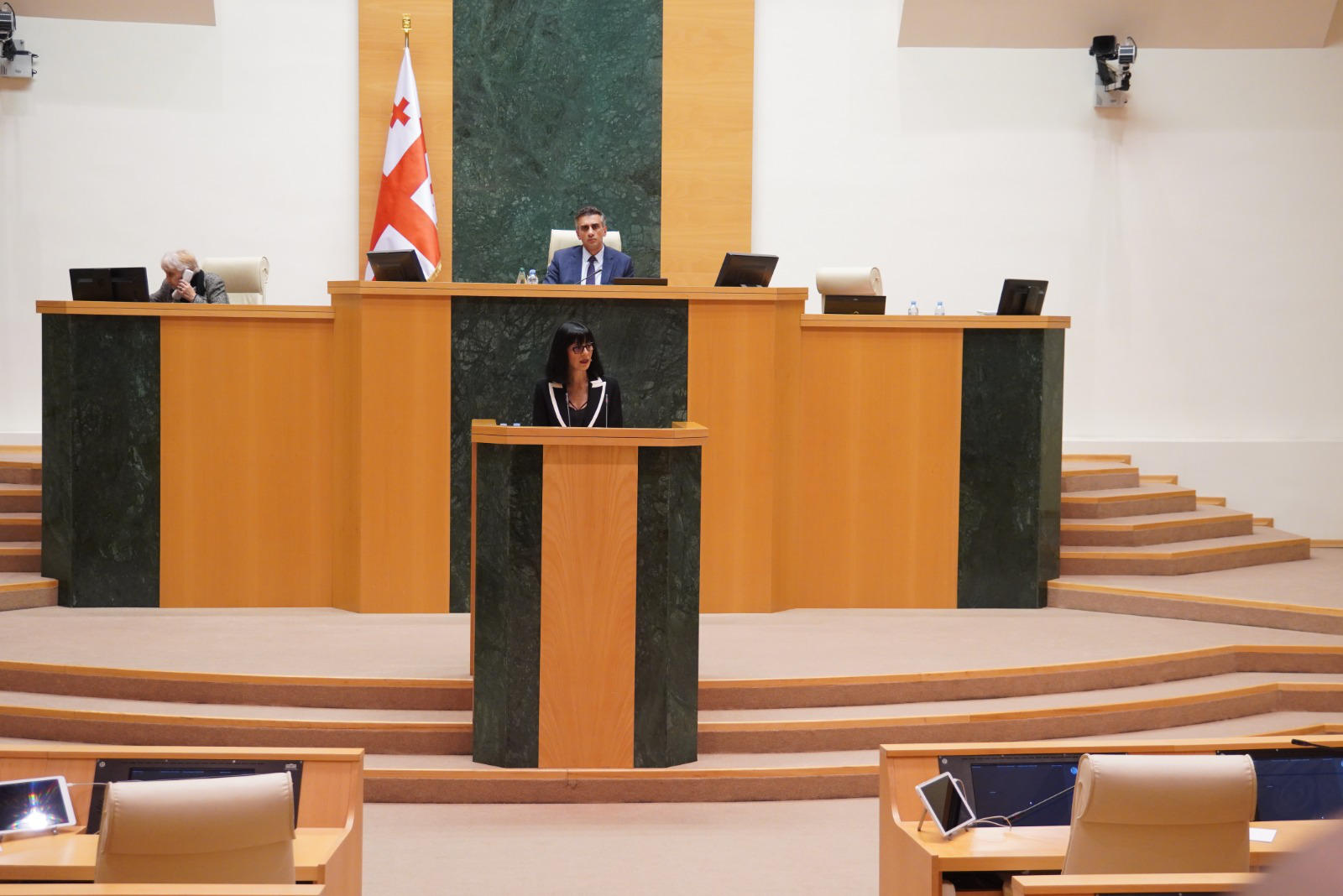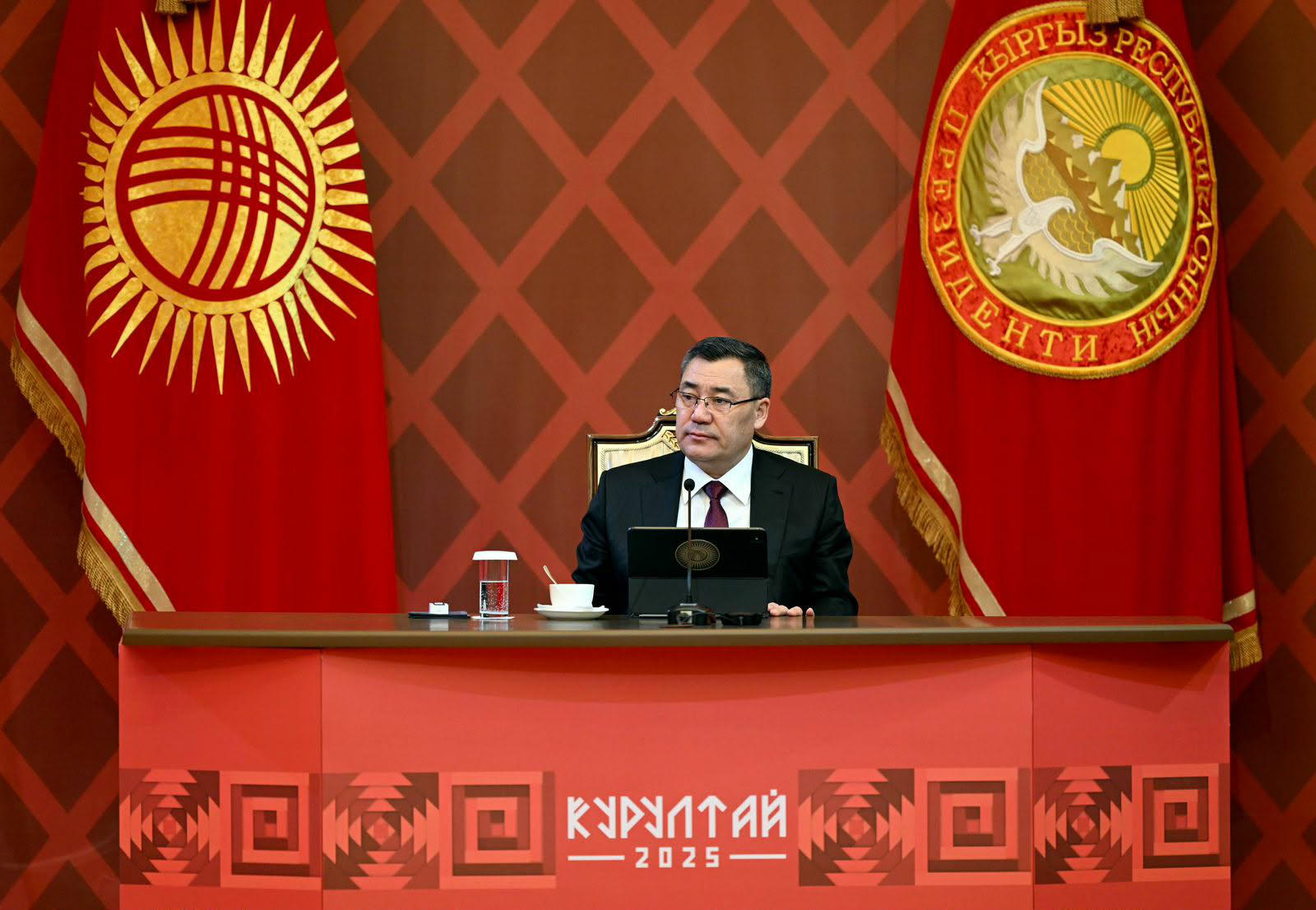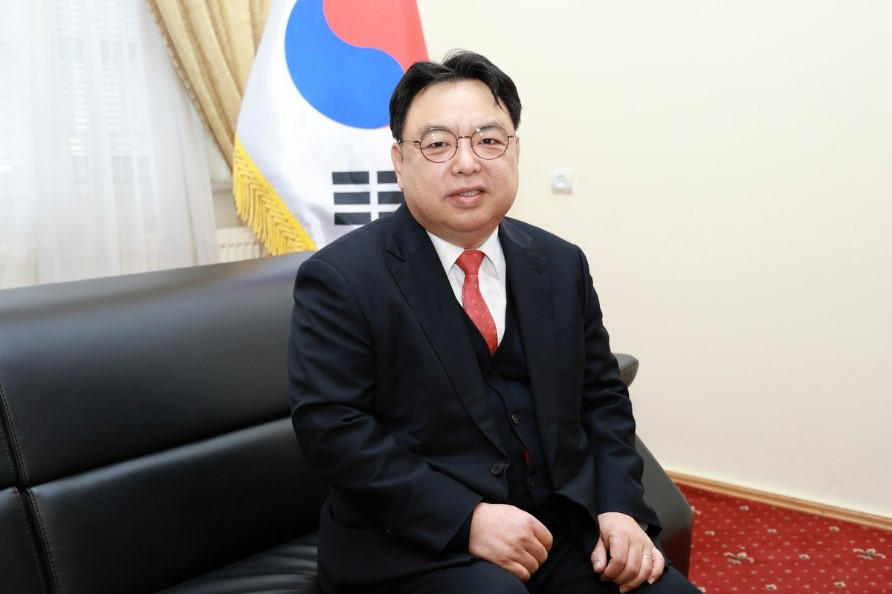Tea Akhvlediani: Reconciliation policy is being implemented in order to eliminate the conflict at the level of people during the de-occupation period, to overcome alienation and deliberately created negative attitudes

Reconciliation policy is being implemented in order to eliminate the conflict at the level of people during the de-occupation period, to overcome alienation and deliberately created negative attitudes, State Minister for Reconciliation and Civil Equality, Tea Akhvlediani, said during her speech in the Minister's Hour format in the Parliament.
According to Tea Akhvlediani, disinformation campaigns and anti-Georgian propaganda have been activated against the peace process.
"Dear Members of Parliament, first of all, I would like to inform you about the policy of reconciliation and engagement, which is an integral part of the unified state policy of peaceful resolution of the conflict and is one of its directions, which is implemented in relation to the regions of Abkhazia and Tskhinvali in parallel with the dimension of de-occupation, in order to eliminate the conflict at the human level during the de-occupation period, to overcome alienation and deliberately created negative attitudes.
Considering the heavy consequences of the ongoing illegal occupation of Abkhazia and Tskhinvali regions, it is worth emphasizing the environment on the ground and developed processes, with which our country and people have to deal with, and under which we continue to make maximum efforts through the implementation of peace initiatives.
In this sense, along with the security challenges on the ground, we mean:
The illegal decisions, which are related to the steps taken by the occupying force towards actual annexation of both regions, and therefore aim to isolate Abkhazia and Tskhinvali region from the rest of Georgia.
The same goal is served by the tightening of controls and restrictions on the activities of international organizations on the ground, as well as the prohibition of access to international security and human rights monitoring mechanisms in both regions. It should also be taken into account that the EU Monitoring Mission has not been given the opportunity to fully implement its mandate in Abkhazia and Tskhinvali region.
Hundreds of thousands of internally displaced persons and refugees still cannot return to their homes in safety and dignity.
Gross and systematic violations of the population's rights and fundamental freedoms, ethnic discrimination, active Russification and assimilation policies, including the ban on receiving education in the native language, restrictions on free movement, access to property, and other social and economic rights continue. In this regard, the situation remains particularly difficult in Gali and Akhalgori regions.
In the conditions of effective control over the regions of Abkhazia and Tskhinvali, the local population is under the influence and pressure of the occupying force, which includes the persecution of people willing to take advantage of the opportunities introduced by the reconciliation policy and peace initiatives.
Active disinformation campaigns and anti-Georgian propaganda are directed against the peace process.
It is in this context that the deliberate steps and statements aimed at legitimizing the illegal occupation and, accordingly, contradict the reconciliation, trust and restoration of relations between people divided by the occupation line, should be discussed," said Tea Akhvlediani.


